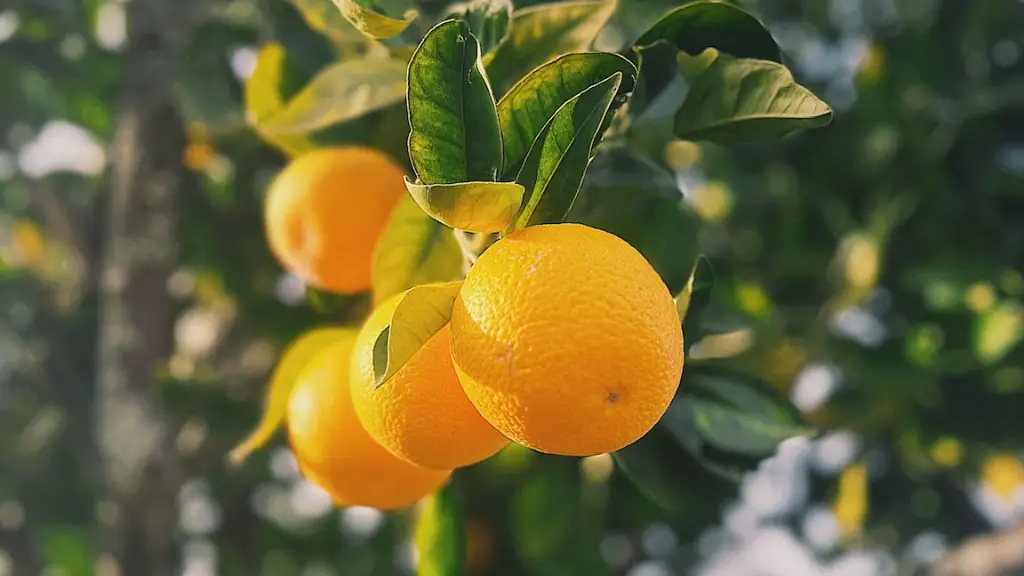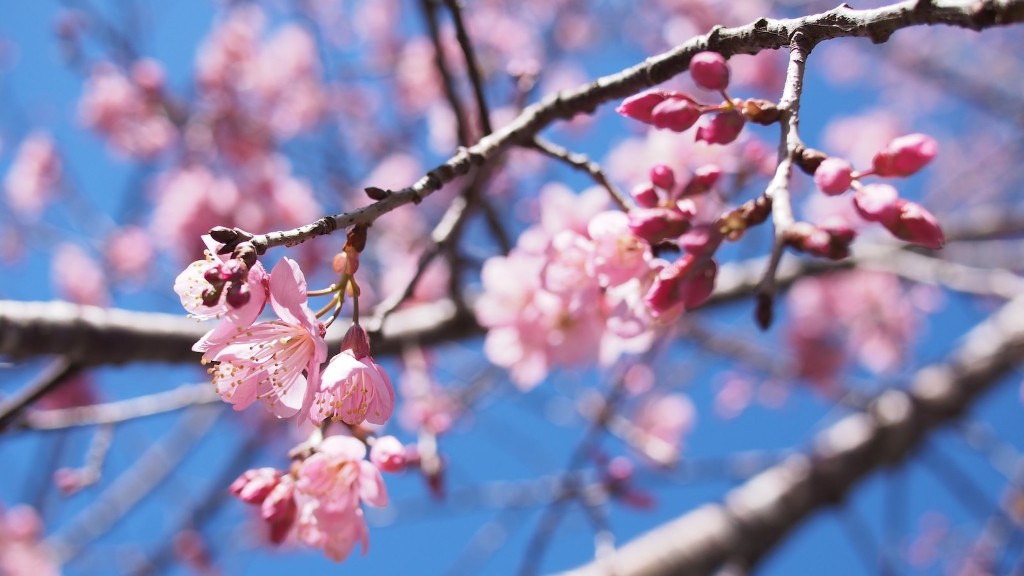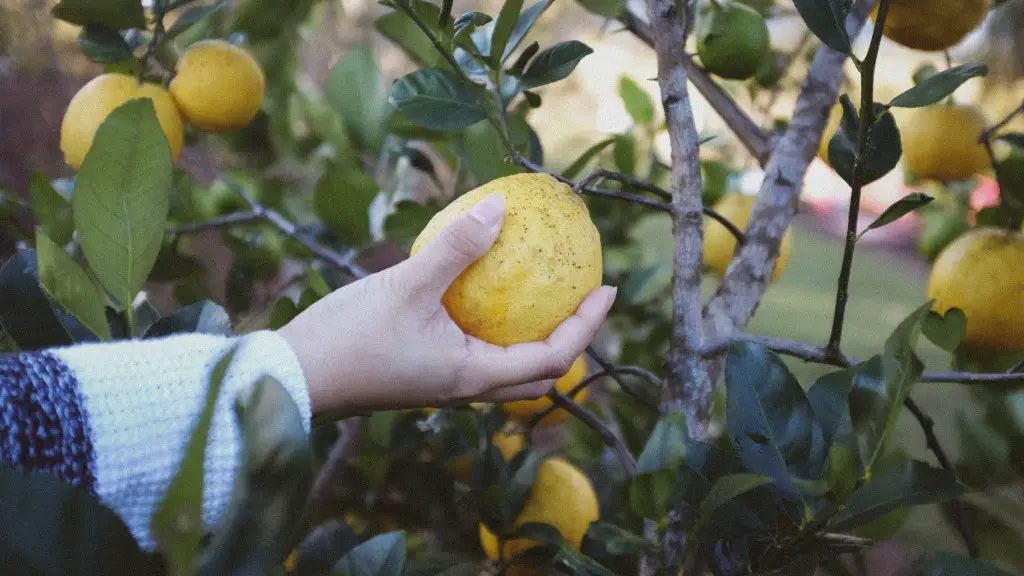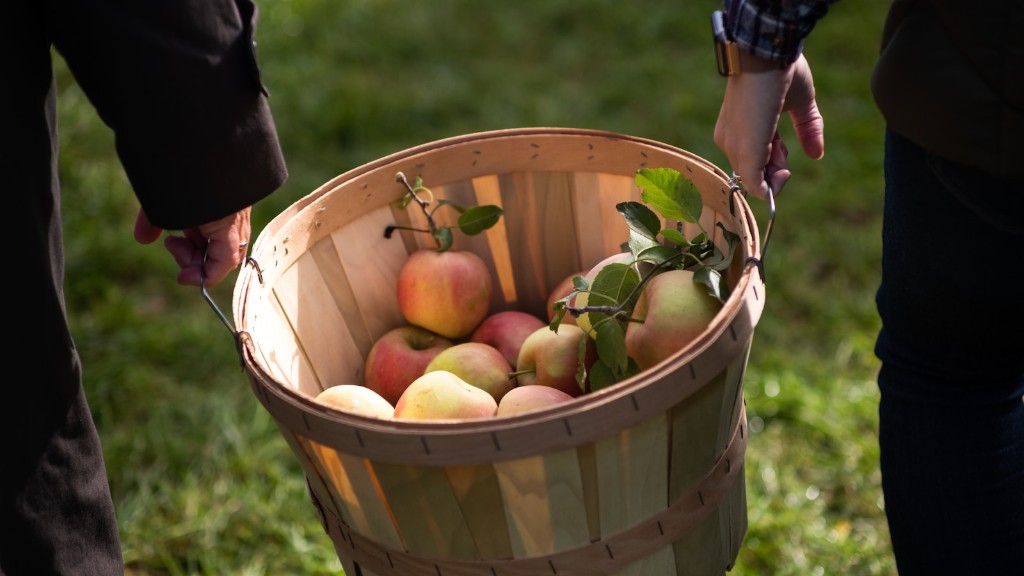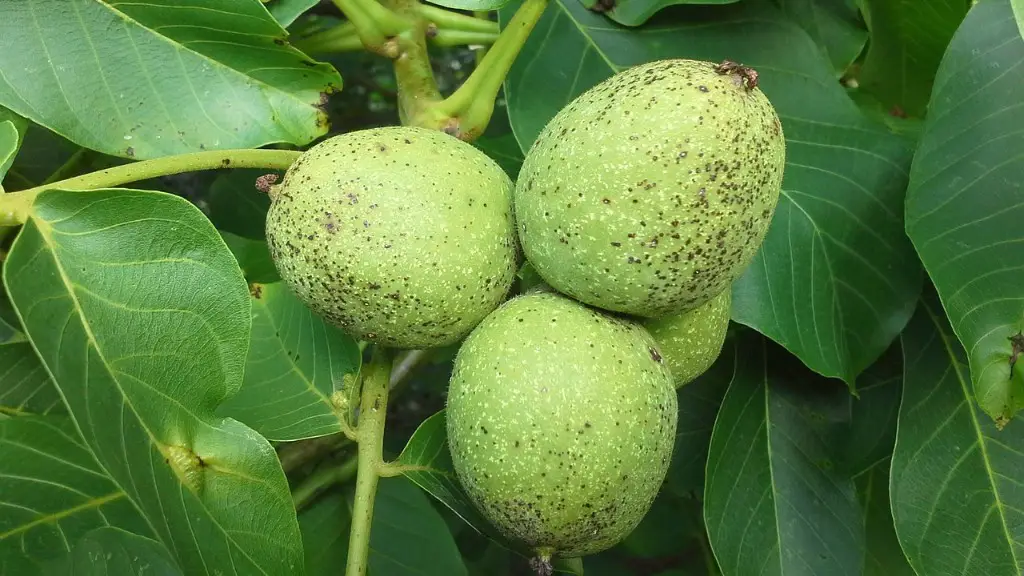Fertilizing your lemon tree is an important part of ensuring its health and productivity. When it comes to deciding when to fertilize your lemon tree, it is important to understand the needs of the tree. In general, you should fertilize your lemon tree once in the spring, when new growth begins, and again in late summer. Here are some tips to help you decide when to fertilize your lemon tree.
First and foremost, consider the soil of your tree. If you are growing your lemon tree in soil that is already rich in nutrients, such as a potting mix or well-mulched soil, then you may only need to fertilize once or twice a year. On the other hand, if the soil is lacking in nutrients then you may need to fertilize more often. Additionally, the age of your tree can make a difference in how often you should fertilize, as an older tree may need more frequent fertilizing.
It is also important to keep an eye on your lemon tree’s foliage. If the leaves appear yellow or stunted, then it is likely time for a fertilizer application. Additionally, if the tree is flowering or fruiting, it is important to fertilize in order to maximize the production of lemons. While there is no exact science to decide when to fertilize, there are a few tips to help guide your decision.
When fertilizing your lemon tree, it is important to use the right type of fertilizer. For best results, you should look for a fertilizer that is designed specifically for citrus trees. Citrus fertilizers contain a variety of macro and micro-nutrients to best nourish your tree. Additionally, make sure that the fertilizer is balanced, which generally means that the nitrogen, phosphorus, and potassium ratios are all equal.
When it comes to the application of fertilizer, it is important to water the tree before and after applying the fertilizer. This ensures that the fertilizer reaches the roots of the tree, which is where it will do the most good. Additionally, be sure to spread the fertilizer evenly throughout the soil and avoid applying excessive amounts of fertilizer. Too much fertilizer can be damaging to a lemon tree.
In order to ensure that your lemon tree is healthy and productive, it is important to fertilize it regularly. The best time to fertilize your lemon tree is once in the spring and again in late summer. Additionally, consider the age and soil of your tree as these can determine how often you need to fertilize. Finally, always use a fertilizer specific to citrus trees and make sure to water the tree both before and after applying the fertilizer.
Choosing the Right Fertilizer
Choosing the right fertilizer for your lemon tree is essential in order to optimize its growth and yield. When selecting a fertilizer, look for a product specifically designed for citrus trees and make sure that it is balanced. A balanced fertilizer contains a blend of essential nutrients including nitrogen, phosphorus, and potassium to nourish the lemon tree and keep it healthy. Additionally, it is important to make sure that the fertilizer does not contain excessive amounts of any single nutrient, as this could be damaging to the tree if applied incorrectly.
Another important factor to consider when selecting a fertilizer is the pH of the fertilizer. It is best to select a fertilizer with a pH that is close to that of the soil of your lemon tree. For example, if the soil of your lemon tree has a pH of 6, then choose a fertilizer that has a pH of 6 or 6.5. Additionally, there are also fertilizer products designed to buffer the pH of the soil, which can be beneficial if the pH is too high or too low.
When selecting a fertilizer for your lemon tree, it is also important to consider the size of the tree. If the tree is still young, then it may need a smaller application of fertilizer than if it is an older tree. Additionally, if the tree has experienced significant growth over the past year, it may need more frequent applications of fertilizer. This is especially true with slow release fertilizers, as these will not supply nutrients to the soil as quickly as a fast acting fertilizer.
Finally, it is important to take into account the season when selecting a fertilizer for your lemon tree. For example, if the temperatures are colder, then you may want to use a fertilizer that is designed specifically to nourish your tree during the winter months. Alternatively, a slow release fertilizer may be beneficial during the summer months when temperatures can get very hot and plants need an extended supply of nutrients.
Methods of Fertilizing
Once you have chosen the appropriate fertilizer for your lemon tree, you will need to determine the best method of applying it. The two most common methods of applying fertilizer to your lemon tree are broadcast application and deeproot fertilizer injections. When deciding which method to use, it is important to consider the size and age of your tree.
Broadcast application is the most common method of fertilizing a lemon tree and involves evenly dispersing the fertilizer across the soil in a circular pattern. It is ideal for small to medium sized trees and can be done with a broadcast spreader or by hand. However, for larger trees, broadcast application may not be effective as the fertilizer may not reach the roots of the tree. In this case, deeproot fertilizer injections may be more beneficial.
Deeproot fertilizer injections are ideal for larger trees and involve injecting the fertilizer directly into the root system of the tree. This ensures that the fertilizer is delivered to the roots of the tree in an optimal amount. It is important to note that deep root injections should not be done more than once a year and should only be performed by a qualified arborist. Additionally, deep root injections can be costly and may not be necessary if your lemon tree is younger or smaller.
When selecting a fertilizer for your lemon tree, it is important to choose one specifically designed for citrus trees and to make sure that the pH and the size of the tree are taken into consideration. Additionally, consider the method of application to ensure that the fertilizer is reaching the roots of the tree and delivering the necessary nutrients. With the right fertilizer and an understanding of when and how to fertilize, you can ensure that your lemon tree stays healthy and productive.
Fertilizer Scheduling
Creating a fertilizer schedule for your lemon tree is an effective way to ensure optimal growth and yield. In general, you should fertilize your lemon tree once in the spring, when new growth begins, and again in late summer. If the soil is lacking in nutrients, then it may be necessary to fertilize more often.
When creating your fertilizer schedule, it is important to consider the age and size of your tree. For example, younger trees may require less frequent fertilizing, while older trees may need more frequent applications. Additionally, if the lemon tree is exhibiting signs of nutrient deficiency, such as yellow or stunted foliage, then it is important to adjust the schedule as needed.
When it comes to the amount of fertilizer to apply, it is important to use the recommended amount listed on the fertilizer packaging. Generally, too much fertilizer can be damaging to a lemon tree and it is important to not over-fertilize. Instead, it is better to start with a lighter application and then adjust according to the tree’s needs.
Finally, make sure to water your lemon tree before and after applying fertilizer. This ensures that the fertilizer reaches the roots and is not being washed away. Additionally, it is important to evenly disperse the fertilizer throughout the soil and avoid applying excessive amounts of fertilizer as this can have a negative impact on the health of your lemon tree.
Fertilizer Storage
In addition to properly fertilizing your lemon tree, it is important to consider the storage of your fertilizer. Many fertilizer products are designed to last up to two years, but beyond that they can begin to degrade and become less effective. To ensure that your fertilizer remains effective, it is important to store it in a cool, dry place and to keep it away from direct sunlight.
Additionally, be sure to store your fertilizer away from other chemicals, such as insecticides or herbicides. The fertilizer can absorb the chemicals, potentially damaging your lemon tree. Additionally, it is important to make sure that the fertilizer packaging is not damaged or torn. If the packaging is not in good condition, it is best to discard the product as it may be compromised.
Finally, make sure to always check the expiration date of your fertilizer before applying it to your lemon tree. If the expiration date has passed, then it is best to discard it and purchase new fertilizer. Additionally, fertilizer that has been exposed to rain or moisture should not be used as it may no longer be effective. By following these guidelines and creating an optimal storage environment, you can ensure that your fertilizer remains effective and helps to keep your lemon tree healthy.
Soil Testing
When it comes to fertilizing your lemon tree, it is important to also take into account the soil in which it is planted. Soil testing can be beneficial in assessing the current nutrient levels of the soil and can help determine if the soil needs additional fertilizer. Additionally, soil testing results can be used to inform your fertilizer selection and application, as you can tailor your fertilizer to the needs of the tree.
Soil testing generally involves collecting a soil sample and then sending it to a laboratory for testing. The laboratory will then provide you with a report detailing the results of the test, which will provide information such as the pH of the soil and levels of macro and micro-nutrients. With this information, you can choose a fertilizer that will be the most beneficial to your lemon tree.
Additionally, soil testing can help to identify any nutrient deficiencies. For example, if the soil test reveals low levels of nitrogen or potassium, then you can select a fertilizer that is designed to address these deficiencies. This can be beneficial in optimizing the health and growing conditions of your lemon tree.
Overall, soil testing can provide valuable information about the soil of your lemon tree and can inform your fertilizer choices. By choosing the right fertilizer, applying it properly, and properly storing it, you can ensure that your lemon tree is healthy and productive.
